An individually secured container, usually made of metal, that is securely kept inside a federally insured credit union or a bank is known as safe deposit box. If this service is not provided by your bank, you can even rent from a private safe deposit facility. Safe deposit boxes are an excellent place for the safekeeping of important items including irreplaceable documents, valuables, and sentimental keepsakes.
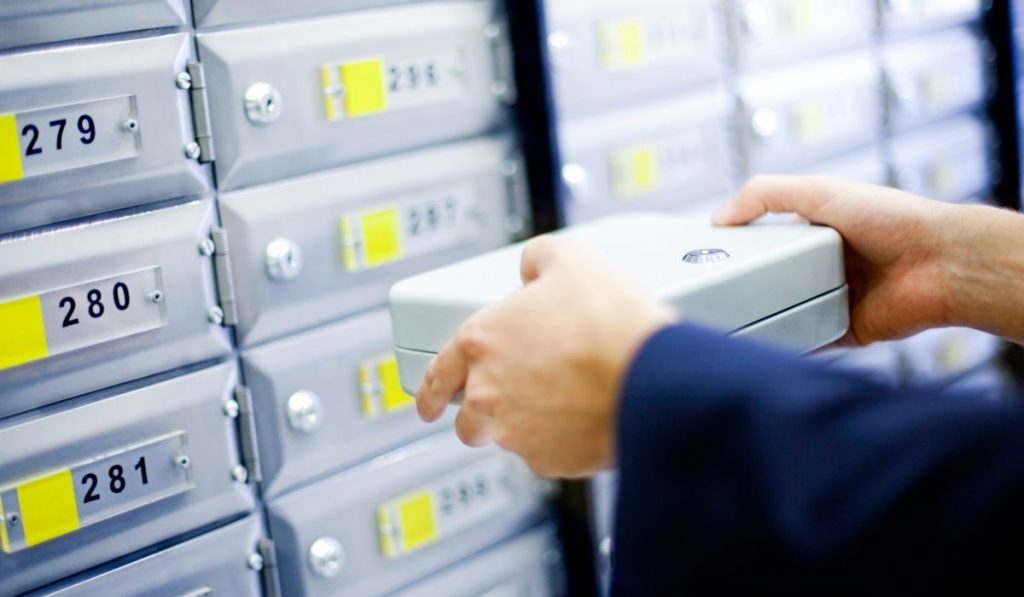
Renting a Safe Deposit Box
The institution where you rent a safe deposit box will provide you with a key that matches a tandem key that will be held by the institution. The second key, also known as ‘guard key’ will be inserted in your safety box by the institution’s employee when you want to access it. If your institution uses a keyless system, then you will be asked to either scan your hand or finger in order to gain access. Anytime and every time you want to access your safety deposit box, you will be required to produce some kind of identification thing.
You have an option to either rent the safety box in your own name, or add other members to the lease. These people will have equal rights to access the contents of deposit box. Therefore, it is suggested to have at least one co-signer so that he/she can access the contents of the safety box in the event that you are unable to do it.
Safe deposit boxes are far safer than home vaults. This is because they are extremely difficult to break into and are well equipped with video camera, alarms and high quality locks. These safe areas are also equipped to survive natural disasters such as floods, tornadoes, hurricanes, and fires. However, this does not mean that you should store anything and everything inside the safe box.
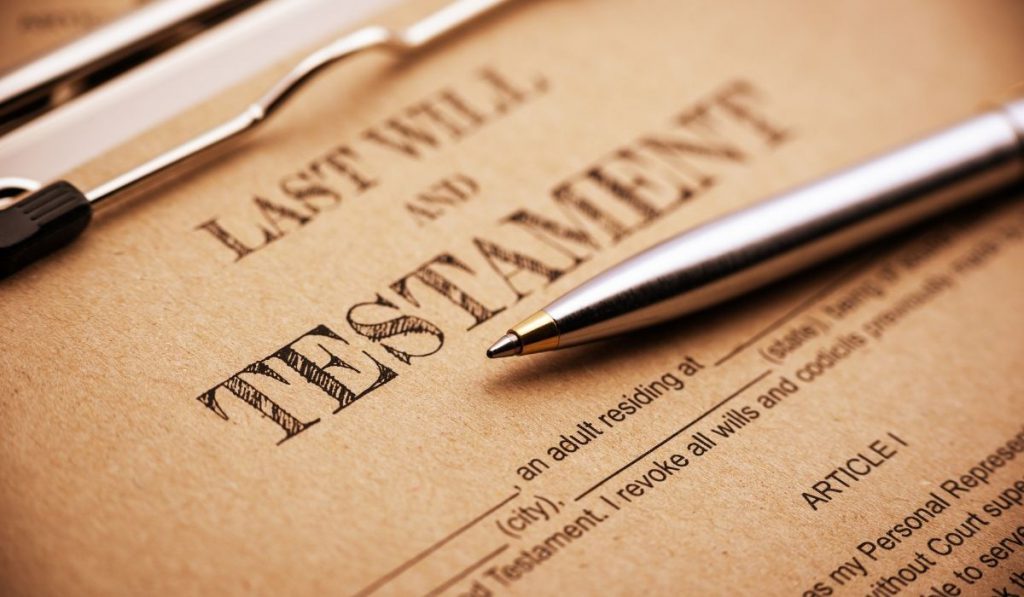
Store Heirlooms, Collectibles and Important Papers
One of the best places to store hard-to-replace documents like bond certificates, military discharge papers, contracts, business deals etc. along with family heirlooms and collectibles is a safe deposit box. Some of the things that can be easily stored in a safe deposit box (and don’t typically require frequent access) are as follows:
- Personal papers, like adoption papers, original birth certificates, citizenship papers and marriage licenses
- Copies of wills and powers of attorney
- Military records and discharge papers
- School diplomas and transcripts
- Sensitive documents that you do not want your family members or roommates to stumble upon (like that stack of love letters from your 6th grade crush)
- Car titles and deed to your house
- Bond certificates and paper stocks
- An inventory of the contents of your home in case you need to file a claim with your home owner’s insurance policy
- Important business records and papers
- Important contracts
- Hard drives and flash drives containing important data as well as backups
- Sentimentally and financially valuable collectibles, jewellery, and family keepsakes
- Other small items as well as documents that are either irreplaceable or difficult to replace
Although these safety boxes are designed in such a way to withstand natural disasters, it is recommended to store your valuables in a zip pouch or a waterproof container so that there is an added layer of protection against water. This will also help you in keeping all the contents of your safe deposit box organized and stacked neatly. Also, make sure that documents needed for quick reference are electronically copied before being stored in the safety deposit box.
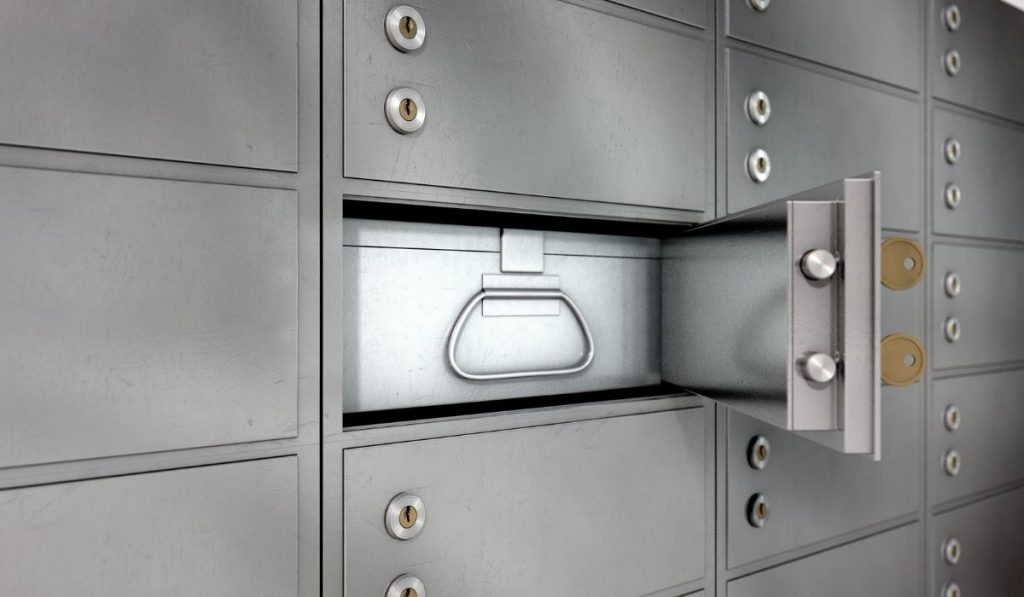
What Not To Store In A Safety Deposit Box
Some things should not generally be stored in a safety deposit box. Most of the banks grant access to safety deposit boxes only on working days, and while many private facilities offer extended evening and weekend hours, you still may not have 24/7 access to the important items stored in your safe deposit box. Therefore, it is important not to save documents and items that you might require at a time of emergency in a safety box. Medical directives and original copies of wills and power of attorney are examples.
This may seem obvious, but is still worth mentioning: it is also suggested not to keep any illegal items in your safety deposit box. If you are truly uncertain, it is always best to consult with your safe deposit facility to ensure that the items you wish to store comply with their policies, as well as local and federal regulations.
Cost of Renting A Safety Deposit Box
The size of a safe deposit box determines its cost. There might be some other fees involved as well like late fees, lost key, drilling etc. You should know that these boxes are generally not covered by insurance.
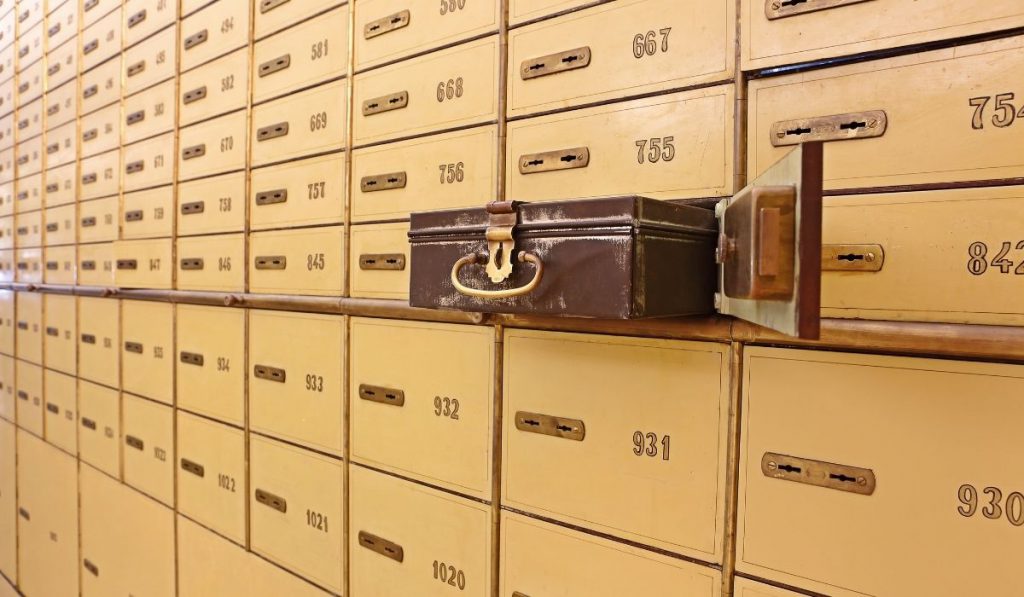
Bottom Line
While the existence of safe deposit boxes goes back 150 years or so, there are less and less people opting to utilize them today. The younger generation today relies more on digital storage systems, and those that are newly living on their own tend to keep important papers at Mom and Dad’s house. This new trend can make it difficult for you to find a safety deposit box in your locality as there is a possibility that your bank might not be providing these services at all.
Still, safety deposit boxes are very helpful if you are not particularly a fan of digital storage system. If you want to rent a safe deposit box, you can check with your local bank or a credit union. If you require extended access hours and additional privacy or anonymity, a private safe deposit facility may be right for you.
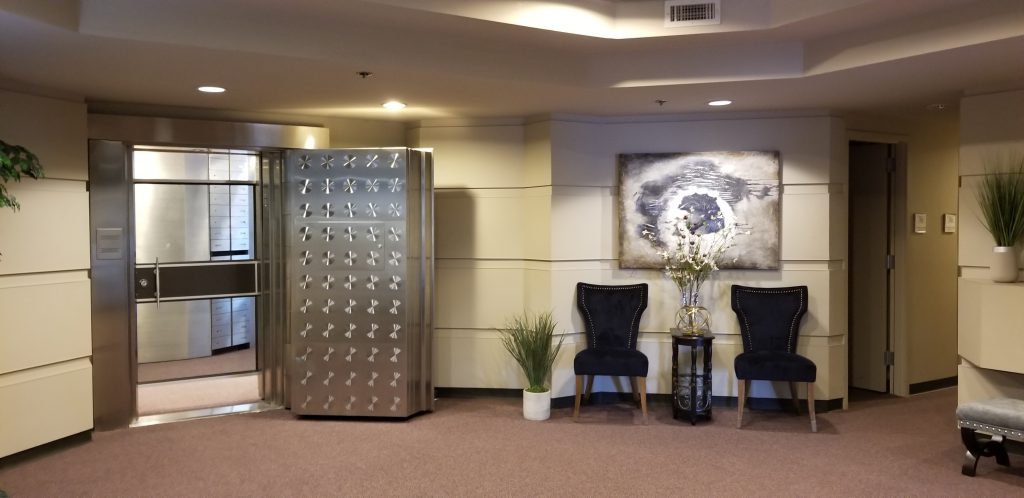
If you are looking for a secure place to store your documents or records, Safe Deposit Center can help. At Safe Deposit Center, we offer a variety of safe deposit box sizes as well as open vault storage to accommodate your secure storage needs. For more information about our secure, private storage facility please visit https://safedepositcenterwa.com/.

